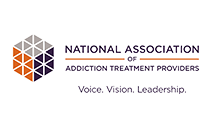Believe in Yourself
Seacrest Recovery Center NJ
Providing substance abuse and mental health treatment, utilizing proven therapeutic methods and individualized treatment tailored to your specific needs
Understanding How Your Health Insurance Works for Drug Rehab
If you know you need help with substance abuse, or you know someone close to you who does, you’re probably confused, upset and overwhelmed. This is especially true if the help you need is for a loved one and you don’t personally know much about substance abuse and drug detox and rehab. However, it’s important to know that you’re not alone. These feelings are normal and not an obstacle to the help you seek. You’re probably also wondering how you will pay for substance abuse treatment. If you have health insurance, it very likely will cover at least some of the treatment cost. This article will focus on understanding how your health insurance works for drug rehab.
The Affordable Care Act established by the Obama administration requires most medical insurance companies to provide at least some type of coverage for substance abuse treatment. However, this required coverage can vary greatly in scope, quality, choice of facility and length of treatment time covered. Some companies may cover nearly all the cost. Others may require a co-pay or contributing amount of some kind that may be substantial. Others may cover standard treatment but not holistic or other alternative ones, even though art and music therapy, equine and animal therapy, yoga, meditation and biofeedback have been shown to be beneficial to many people as they move through the drug rehab process.
HMO or Managed Care Insurance
If you have HMO medical insurance, you will likely be limited to a few, or even just one, treatment options when it comes to the choice of a facility you would like to attend. Although HMO health insurance generally covers substance abuse treatment, you may run into some other limitations:
- You will need a referral
- The HMO may question the need
- Limits or prohibitions on out-of-network care
HMO companies are also called managed health care companies. They contract with certain medical facilities, who then give the HMO reduced rates for medical care. An HMO will assign you to a primary care doctor who oversees all your care, including the need for a referral to a specialist. To get substance abuse treatment under an HMO, your primary care physician must believe that this treatment is medically necessary and not able to be accomplished any other way. It’s just one way that the HMO limits expenses.
Even if your primary care doctor submits the referral, the HMO can still question it. It doesn’t mean that you won’t get the rehab treatment you need, but it’s a possible obstacle. The HMO will also likely refuse to cover any out-of-network care. This means that if you want to attend a facility not affiliated with the HMO, the treatment won’t be covered. You can then choose between financing it yourself or choosing another HMO-affiliated rehab. In some cases of out-of-network care, the HMO may agree to cover a certain portion of the cost, leaving you to pay the rest yourself.
PPO Insurance
PPO stands for Preferred Provider Organization. This is a network of medical professionals who provide services for the PPO. You will generally have a wider choice of rehabs than with HMO coverage, but this coverage can vary widely. For example, your PPO may cover rehab but not detox. Well, you can’t attend rehab until you have been through detox, so that leaves you with the expense of detox. Some PPOs may cover both. All require that you meet any deductible amount before they will pay for substance abuse treatment. This is the amount that you are responsible for. For example, if your policy has a $1000 deductible, then you must cover the first $1000 of any medical treatment, whether it be substance abuse rehab or something else entirely. What a PPO cannot do, however, is impose coverage limits on substance abuse treatment costs unless it also imposes those same limits on other types of medical treatment.
Even though federal law requires medical insurers to provide some type of drug treatment, the insurer can still choose which type of coverage it will offer. It may be only detox and outpatient treatment. It may be one or the other or neither. It may or may not cover a residential rehab treatment facility at all. It depends on the policy.
Let Us Help
Medical insurance is confusing. There are a myriad of coverage options and limitations to review and understand. A simple call to us at 833-610-1174 can help you sort out just what your policy covers and what your options are. We are to here to help, and we look forward to your call.
Today Is The Day
You Never Have To Feel This Way Ever Again
One simple call to our caring and compassionate staff, and you can be on your way to a lifetime of freedom and recovery

As Seen On Hulu
Seacrest Recovery Center is The Featured Drug & Alcohol Rehab on Jelly Roll's Save Me Documentary on Hulu Originals
Trusted Treatment Provider
Certified and Accredited Both Locally and Nationwide



Our Clients Believe In Us
And We Believe In Them!
Here Is What They Are Saying
About Seacrest Recovery
Your First Step To Recovery
Our Locations

Columbus OH

Eatontown NJ

Willard OH










